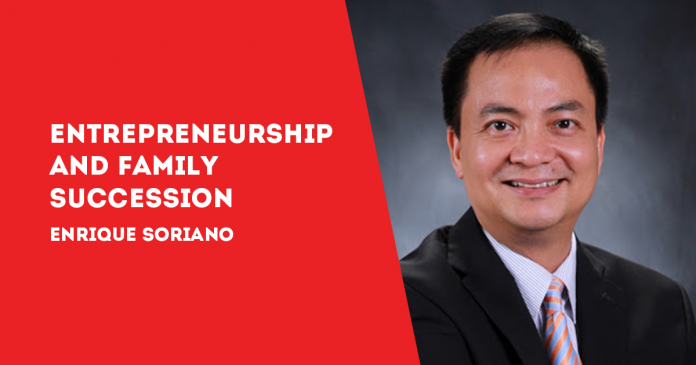
BY PROF. ENRIQUE SORIANO
AT THE HEIGHT of the health pandemic where governments in Asia imposed restrictive lockdowns, many businesses were severely affected.
Most of those that struggled were forced to let go of their workforce. Companies that opted to retain their employees ended up making sacrifices by taking pay cuts.
But for family firms, most family members that work in the business appear to have been exempted from these necessary pay cuts. This practice of treating family members different from nonfamily employees invariably creates problems. This is further exacerbated when family members show discomfort in discussing money, especially personal salary or wage levels.
Author Peter Leach remarked in his book, “In the family system, the guiding norms are that family wealth should be distributed either according to need or according to principles that are transparently fair. In the case of siblings, for example, fairness is generally taken to mean that resources be allocated equally. But in the business, remuneration should be based on the individual’s contribution.”
A year before the pandemic hit, I received an email from an executive assistant urgently requesting for a telephone conference with her boss based in Vietnam. The contents of the email and the tone of our exchange appeared frantic — that her boss needed to talk to me and that should there be an agreement related to my engagement, she could immediately arrange for my flight to Ho Chi Minh in a few days!
After conversing with her boss Nguyen (not his real name), I discovered that the family was in a huge mess primarily because of the conflict related to compensation among the children.
In our first telephone conversation, Nguyen expressed frustration and said, “I found out too late that the conflict among my children especially between my two sons started early in their careers. My eldest son Tran, felt that he should have a higher salary because he joined the business much earlier, made sacrifices and followed the desires of his parents to help in the family business. In short, Tran boasted seniority. On the other hand, my other son Van felt that they should have equal salaries because he was also putting in as much work even if he was spending less time in the office. He also bragged about his MBA that he completed in a university in Australia.
The father continued: Their conflict came to a head around the question of fairness and putting in time for work. Tran who was married, with two kids, spent many hours working, while Van who just recently got married, had an infant son whom he claims he wanted to spend quality time with. It was obvious that Van was enjoying his parental obligations but was spending less time at work than Tran. He also felt that he was capable of doing adequate work in less time.
Tran asserted that equal pay was unfair and threatened that if the practice of their parents to give equal pay continues, he would rather quit and migrate to another country. Nguyen and his wife were obviously caught in the crossfire. They were also scared that Tran might take his word and migrate and they will never see their two grandchildren.
To add salt to the wound, soon after, the two other younger siblings who were also working in the family business started to join the chorus, demanding the same pay as their older siblings. This was a major conflict about to implode and the founder was helpless and was unable to deal with it constructively.
My team worked tirelessly to formulate a compensation and benefits program and we took the position that salaries should be based on their job performance. The family embraced our recommendation and after rolling it out for a year, the program was incorporated in the family’s charter.
What triggered the conflict among the children? What were the blunders the founder committed? (To be continued/PN)





